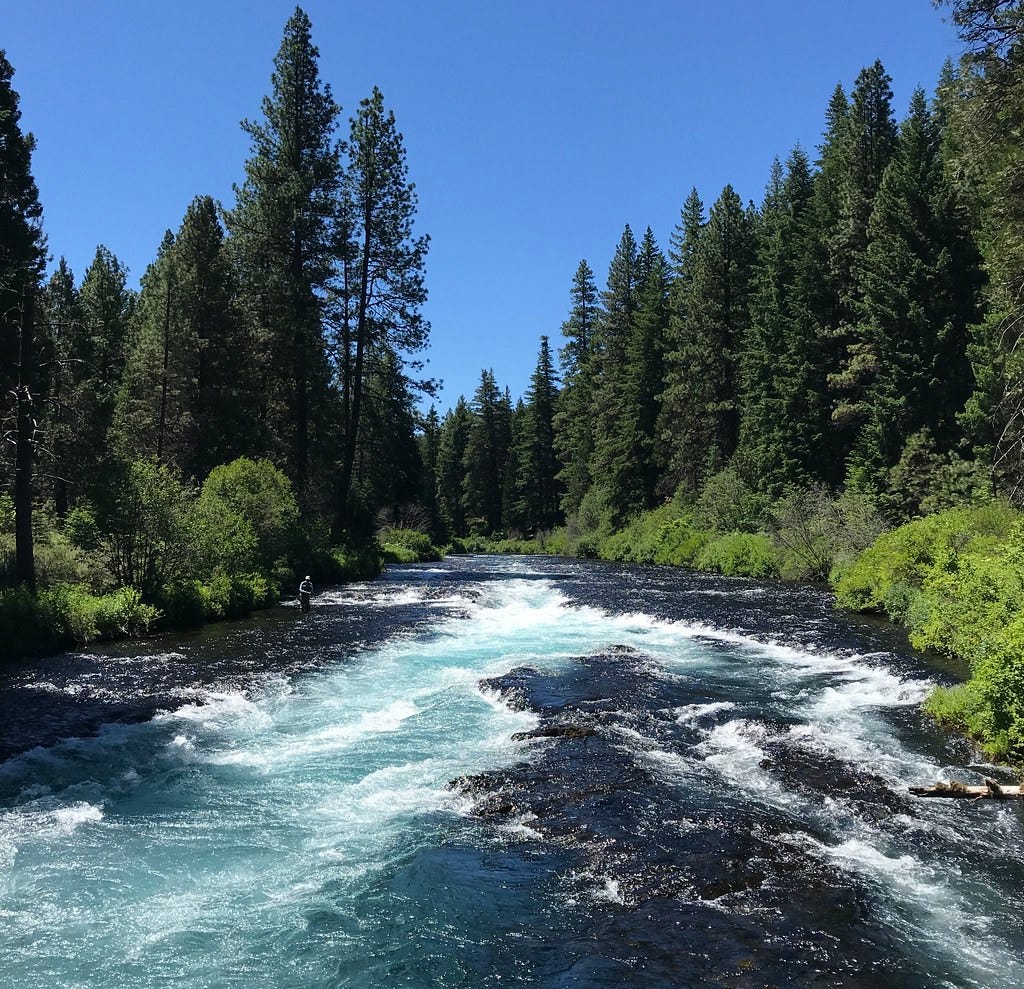Do your part to Sustain the Way! We’ve raised more than $500 and could use your help.
Donate here or subscribe below to create a part-time editor position. Thank you! - kevin

Editor’s Note:
Political competition is a good thing, right? The vast majority of Oregonians think so. Yet, every ten years—when we redraw our electoral districts in light of a new census, we ask a question that seems to admit that we’ve given up on competition:
How many seats should we draw for Democrats and how many should we draw for Republicans?
This acquiescence and seeming acceptance of partisanship, safe seats, and fealty to the status quo is understandable. After all, for decades Oregon’s districts have effectively been reserved for one of the state’s two major parties (four seats for Democrats, one for a Repubilcan).
A recent survey from DHM Research reveals that Oregonians may be ready to start asking a different set of questions that lead to answers in more shades than blue and red. Here’s the question we’re used to asking and the surprising results:
A plurality of Oregon (37%) want a partisan balance (three Democrat seats, three Republican seats). What’s that say about how Oregonians are thinking about politics right now?
Perhaps I am looking too deeply at these numbers, but I don’t think Oregonians really want an equal number of representatives split between the major parties. As John Horvick covered in his recent piece, the number of Oregonians identifying with either major party is declining. That’s why I think these results are best read as a desire for political competition and, ultimately, a collaborative approach to politics.
To find out if I’m right, we’ll have to keep asking more, novel questions, pushing on the status quo, and thinking in new ways about how we can break gridlock and unlease collaborative governance.
To a better Oregon,
Kevin
To support:
Our volunteer editor is joining the Air Force. Let’s Sustain the Way and raise the fund required to formalize this organization.
Will you donate $20 to ensure The Oregon Way is around for the long-term?
To look forward to:
Posts from Kristina Edmunson, Cam Scott, and others!
To ponder: Oregonians take the middle of the road on social issues.
To read:
Time for a year of service? Learn more about “The Oregon Year” from Kevin Frazier’s post:
John F. Kennedy won’t be on the Oregon ballot in 2022. His ideas should be. In particular, candidates for governor should outline their plans to help Oregonians serve one another and their communities.
President Kennedy made clear that our democracy was much more than a one-way street. Yes, local, state, and federal governments should serve the people; but Kennedy made clear that people should also serve one another in addition to serving as a means to advance local, state, and federal goals.
Oregonians talk a lot about a high quality of life. Glen Claybrooks has a pathway for the state to get there when it comes to healthcare.
Currently, the provision of services to address unmet needs face a number of barriers. Such restrictions are consistent with unmanaged health conditions, limited healthcare coverage, remote locations, untimely care, out-of-pocket costs, and healthcare providers' implicit racial bias impacts.
These elements often result in unequal access and disproportionate health disparities related to diseases, injuries, job losses, inadequate nutrition, domestic violence, and other socially denied opportunities, resulting in poor health outcomes and unsustained quality of life disruptions. Observed circumstances of this magnitude often occur among the rural, low-income, abject poor, LGBTQIA, the disabled, elderly, and minority populations.
Rep. Simpson (ID-02) has a proposal for protecting salmon in the Columbia River basin. Christina deVillier assesses its merits:
On February 6th, 2021, U.S. Representative Mike Simpson, a Republican from a conservative district in Idaho, unveiled a bold and provocative proposal that has been years in the making. More than 300 meetings and countless hours of mapping, synthesizing, and problem-solving have produced a big-picture framework designed to address all of these problems at once.
At the center of the proposal is the breaching of the four dams on the lower Snake River, and big investments to replace or retool the irrigation, transportation, and energy benefits those dams provide—to the tune of $33 billion.
To quote:
World events are occuring with such great rapidity that it is more than difficult to predict what the morrow may hold...or bring forth.
These are indeed critical times...times of great uncertainty...times which truly try [our] souls. Let us find courage and unity in the stirring, matchless record of our heroic [Oregonians].
Tweet us the answer of who said this! @the_oregon_way





